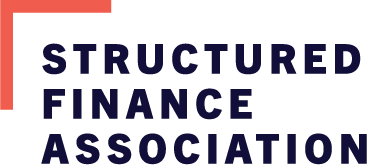In December 2020, the Structured Finance Association (SFA) submitted feedback to the Fixed Income Market Structure Advisory Committee (FIMSAC), an advisory group to the U.S. Securities and Exchange Commission (SEC), regarding the oversight and regulation of Nationally Recognized Statistical Rating Organizations (NRSROs).
Background
The Credit Ratings Subcommittee of the FIMSAC was formed to consider the role of NRSRO credit ratings in various financial markets. One of the key focuses for this subcommittee is the exploration of potential conflicts of interest in industry payment models. After soliciting feedback from industry participants on this topic, the FIMSAC subcommittee set forth recommendations (FIMSAC Recommendations) aimed at improving both transparency and potential outcomes for investors. These recommendations included:
- Increased NRSRO disclosure
- Enhanced disclosures by issuers of unsecured corporate debt or securitized debt, and
- A mechanism for bondholders to vote to ratify the issuer-selected NRSROs
SFA Response: Key Points
SFA’s response to FIMSAC highlighted that, it is important to ensure proper regulatory requirements and market practices to address the “potential conflicts of interest associated with the current issuer-pay model” (as described in the FIMSAC Recommendations), and thus to instill and maintain confidence in the investor community that the NRSROs will issue ratings independent and free from influence resulting from conflicts of interest. Moreover, with the right balance of information disclosure, supervisory oversight and market discipline, concerns related to potential conflicts of interest in the credit rating process can continue to be carefully monitored and managed in a manner that protects and enhances the critical role that NRSROs play in the health and stability of our financial system and within the securitization market.
SFA agreed with FIMSAC that high-quality information is a requisite for financial markets if they are to efficiently allocate capital and create liquidity, and thus allow the country’s households and businesses to grow and to invest responsibly.
Given the vital role that credit ratings play, SFA also agreed that it is important for the SEC to periodically review its regulation of the credit rating process while keeping in mind the comprehensive changes to the oversight of NRSROs, including new disclosure requirements, that have been adopted since the financial crisis of 2008. The checks and balances already in place should continue to be evaluated to ensure that they are sufficient and effective, and that their benefits continue to outweigh related costs. It is particularly important to recognize that the securitization market has evolved in response to this system of checks and balances, and that new regulatory initiatives should be prudently designed to provide adaptable oversight.
Specific to the FIMSAC recommendations, SFA expressed:
- Willingness to consider providing enhanced issuer disclosure regarding their process of selecting an organization to rate a bond while importantly noting there was little guidance in the FIMSAC Recommendations regarding how issuer policies and practices might be further developed.
- SFA issuer members expressed willingness to examine disclosure policies that would generally accord with the idea that public NRSRO ratings of bonds should be disclosed. Such disclosures should, however, extend only to the ratings of those NRSROs that an issuer hires; disclosures should not extend to private ratings or to tranches that issuers do not ask NRSROs to rate.
- SFA also recommends that any additional disclosure be made in “free-writing prospectuses” (as defined pursuant to SEC rules), and not be incorporated in registration statements themselves.
- Support of initiatives to enhance transparency with regard to the methodologies and models employed by NRSROs. However, SFA expressed concern that the specific suggestions described in the FIMSAC Recommendations seem to reflect a misunderstanding of the ratings process for securitization transactions.
- Accordingly, the specific recommendation regarding NRSRO disclosure was difficult to address in detail. Nonetheless, our NRSRO members expressed that they are committed to providing investors and other market participants useful information to help them make informed decisions. Accordingly, SFA and its members remain available for discussions with FIMSAC and the SEC as they consider whether further NRSRO disclosure would benefit the market.
- Concern that a bondholder ratification process, as suggested by the FIMSAC Recommendations, would be unworkable for securitization transactions and could result in consequences that, though unintended, are foreseeable and adverse.
